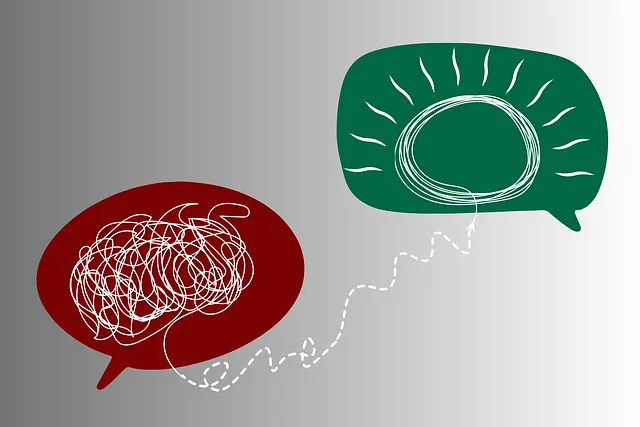Kaiser's mental wellness group facilitation in Highlands Ranch creates a safe space for individuals to explore and improve their mental health journeys. Through evidence-based techniques like mindfulness, self-awareness exercises, and mind over matter principles, facilitators guide participants in managing stress, building resilience, and setting personal goals. Active listening and open dialogue are key tools for creating an inclusive environment, reducing stigma, and fostering emotional well-being. By combining group discussions with targeted workshops, Kaiser ensures a supportive community that enhances mental health and promotes personal development while addressing the unique needs of Highlands Ranch residents seeking its mental health services. Measuring success through various methods allows facilitators to adapt strategies, ensuring the program remains dynamic and responsive to the evolving wellness needs of the community.
In today’s digital era, mental wellness group facilitation plays a pivotal role in supporting individuals like those utilizing Kaiser’s mental health services in Highlands Ranch. This article delves into essential techniques for facilitating effective support groups. We explore strategies to create safe spaces, engage participants through active listening, promote open communication and trust, and measure success while adjusting facilitation strategies accordingly. By mastering these techniques, facilitators can enhance the overall wellness of group members.
- Understanding Mental Wellness Group Facilitation
- Techniques for Creating a Safe Space
- Engaging Participants Through Active Listening
- Promoting Open Communication and Trust
- Measuring Success and Adjusting Strategies
Understanding Mental Wellness Group Facilitation

Mental wellness group facilitation involves leading and supporting a diverse group of individuals who come together to share experiences, learn from each other, and gain insights into their mental health. It’s an essential service offered by many healthcare providers, including Kaiser in Highlands Ranch, aiming to promote healing and growth through community and connection. Facilitators play a crucial role in creating a safe, non-judgmental space where participants can explore their mental wellness journey.
This process often incorporates various techniques such as mindfulness meditation practices, self-awareness exercises, and teaching mind over matter principles. These tools empower individuals to manage stress, cultivate resilience, and improve overall well-being. Through guided discussions and activities, facilitators help members navigate challenges, set goals, and celebrate progress, ultimately fostering a supportive environment that enhances mental health and promotes personal growth.
Techniques for Creating a Safe Space

Creating a safe space is paramount in mental wellness group facilitation. In Highlands Ranch, Kaiser offers robust mental health services tailored to address various needs. Facilitators can foster an environment free from judgment by establishing clear ground rules and promoting active listening. Encouraging open dialogue while respecting individual boundaries helps participants feel seen and heard, reducing the Mental Illness Stigma Reduction Efforts. This approach paves the way for vulnerable individuals to share their experiences without fear of recrimination.
Additionally, incorporating strategies like guided meditation or mindfulness exercises can enhance the sense of safety. These practices not only promote self-awareness but also teach participants effective Self-Care Routine Development for Better Mental Health. By prioritizing burnout prevention strategies for healthcare providers facilitating these groups, facilitators ensure sustained support and maintain a healthy balance between professional duties and personal well-being, addressing crucial aspects of mental wellness in the process.
Engaging Participants Through Active Listening

In facilitating mental wellness groups, active listening is a powerful tool to engage participants and create a safe space for open dialogue. This technique involves giving your full attention to each speaker, understanding their perspective, and responding thoughtfully. By practicing active listening, group facilitators in Highlands Ranch can foster an environment where individuals feel heard and valued, which is crucial for building trust and encouraging participation. When leaders of mental health education programs design sessions with this approach, it promotes emotional intelligence and enhances emotional well-being promotion techniques within the group.
Furthermore, active listening helps to identify unmet needs or specific concerns among group members. Facilitators can then tailor their responses accordingly, ensuring that each individual feels supported and understood. This personalized attention can significantly impact the overall success of mental wellness initiatives, especially when considering the diverse range of experiences and challenges brought by participants from various backgrounds, including those seeking Kaiser’s mental health services in Highlands Ranch.
Promoting Open Communication and Trust

Creating a safe and supportive environment is paramount when facilitating mental wellness groups. Encouraging open communication fosters trust among members, allowing them to share their experiences and insights freely. This low-threshold atmosphere is especially crucial in areas like Highlands Ranch, where individuals seeking Kaiser’s mental health services might find solace in group settings. By promoting honest dialogue, facilitators can help participants process emotions, challenge negative thought patterns, and build resilience.
Building trust is a cornerstone of effective group facilitation. Facilitators should model active listening, empathy, and confidentiality to ensure members feel heard and respected. Incorporating techniques like round-robin sharing, where each participant takes turns speaking, enhances connection and camaraderie. Moreover, integrating trauma support services or stress management workshops can provide targeted tools for self-care routine development, empowering group members to take charge of their mental health in a supportive community.
Measuring Success and Adjusting Strategies

Measuring success and adjusting strategies are vital components of effective mental wellness group facilitation. Facilitators should employ a multi-faceted approach to assess progress, which may include self-reported measures from participants, such as mood tracking or emotional well-being questionnaires. Additionally, observational techniques can provide valuable insights into group dynamics and individual engagement. By combining these methods, facilitators gain a comprehensive understanding of the group’s overall health and identify areas needing improvement.
For instance, if initial assessments reveal low participation rates in certain activities, a facilitator might adjust their strategies by incorporating more interactive and engaging emotional well-being promotion techniques. Similarly, recognizing cultural disparities within the group can prompt healthcare provider cultural competency training to ensure all participants feel seen and heard. Regularly reviewing and adapting facilitation methods based on these metrics facilitates a dynamic and responsive environment that caters to the evolving needs of the Highlands Ranch community, including those utilizing Kaiser’s mental health services.
Mental wellness group facilitation plays a pivotal role in fostering community and support among individuals seeking improvement. By understanding the dynamics of these groups, creating safe spaces, actively listening, encouraging open communication, and consistently measuring success, facilitators can enhance the therapeutic experience for all participants. At Kaiser in Highlands Ranch, these techniques are employed to provide comprehensive mental health services, ensuring that each individual receives personalized care and support on their journey towards well-being.






